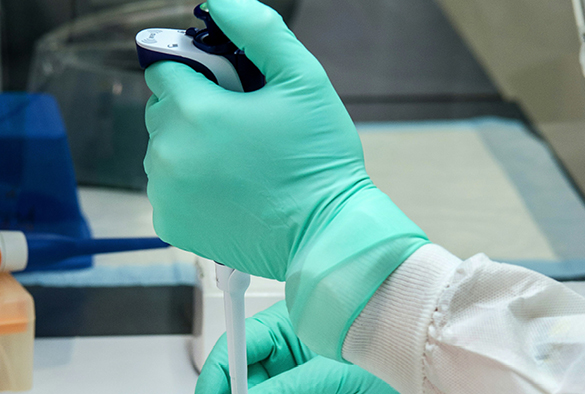
A Nuffield Council on Bioethics working group, including the University of Liverpool’s Professor Amel Alghrani, has published proposals for the governance of research using stem cell-based embryo models (SCBEMs).
The new report, published 27 November 2024, calls for legislation to distinguish SCBEMs from embryos and to provide reassurance that ethical ‘red lines’ such as transferring a SCBEM into a human or other animal, or developing SCBEMs that can feel pain, are not crossed.
SCBEM is an umbrella term for a range of structures created from stem cells which resemble or replicate aspects of an embryo. As a research tool, SCBEMs have the potential to bring public benefit through new insights around early human development and may in future have important applications that help improve IVF and pregnancy care. However, there is debate about their status – for example in relation to human embryos – and how they should be used.
An expert working group has conducted an ethical and governance review of SCBEM research. To address the identified concerns, the group has made recommendations for a phased approach to regulation. This approach involves implementing 'soft' governance in the short term and 'hard' law in the medium term. The goal is to encourage innovation while ensuring that the research respects ethical boundaries and delivers benefits to the public.
The review identified the points of greatest ethical concern in relation to the potential use of SCBEMs and makes recommendations for policy makers and others who have an influence on this field of research about what could be done to address them.
Speaking of the report, Professor Amel Alghrani, Liverpool Law School, shared:
“The Nuffield Council on Bioethics' proposals represent a timely and essential step in addressing the rapidly evolving landscape of stem cell-based embryo models. By calling for robust governance and updated legislation, the report highlights the need to ensure that ground-breaking research in this field proceeds responsibly and within ethical boundaries. As the science progresses, safeguarding these ethical 'red lines' is crucial to maintaining public trust while unlocking the immense potential of this research for understanding human development and advancing medicine.”
Access the report: Human stem cell-based embryo models: A review of ethical and governance questions
Read the full press release from the Nuffield Council on Bioethics: Nuffield Council on Bioethics sets out proposals to bolster governance of stem cell-based embryo models including a call for legislation to ensure that research does not cross ethical ‘red lines’.